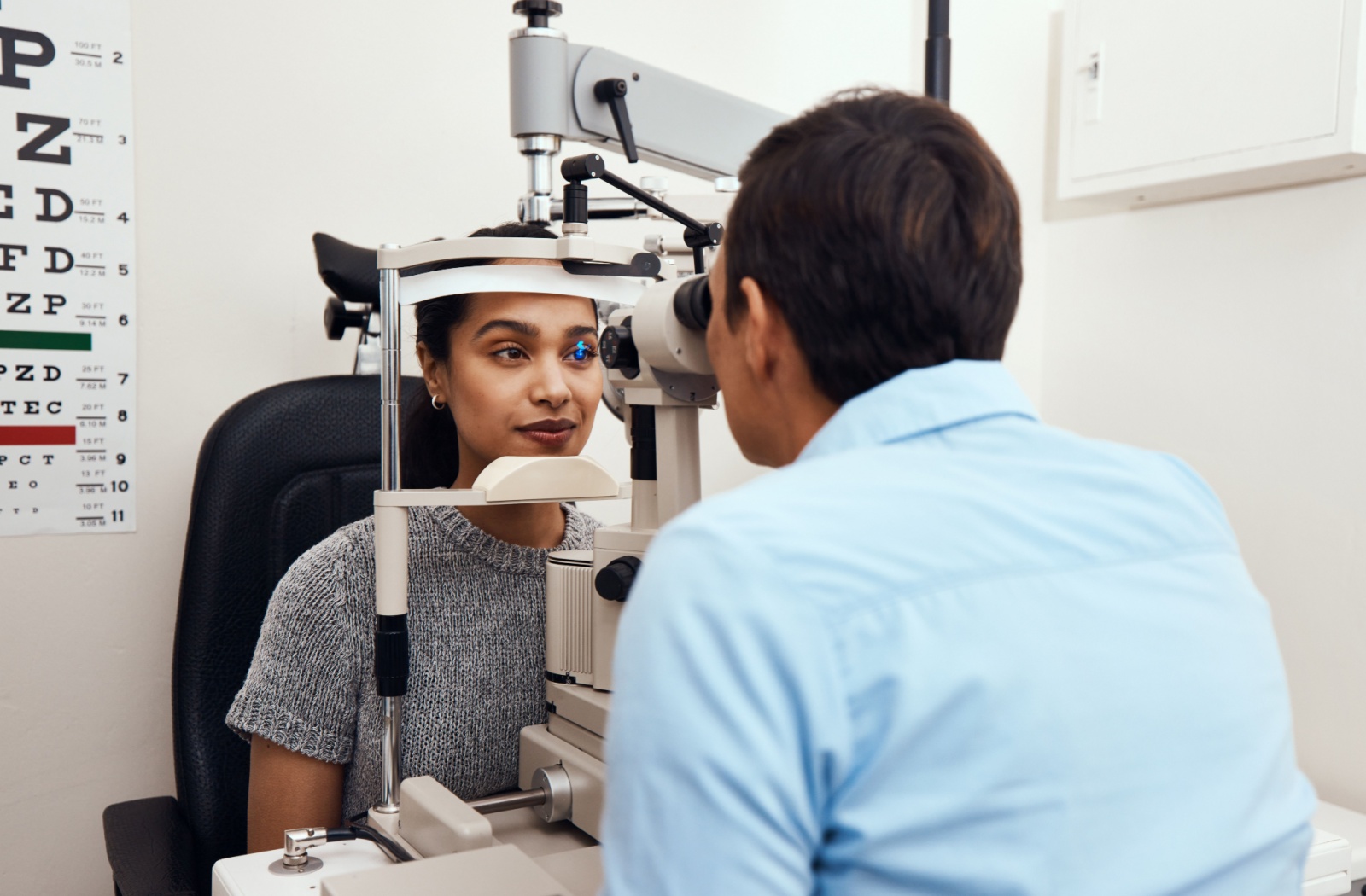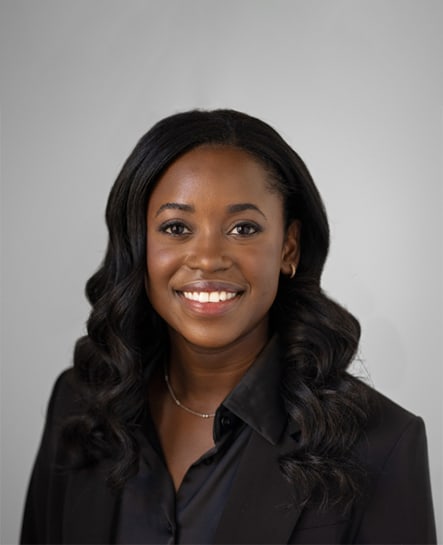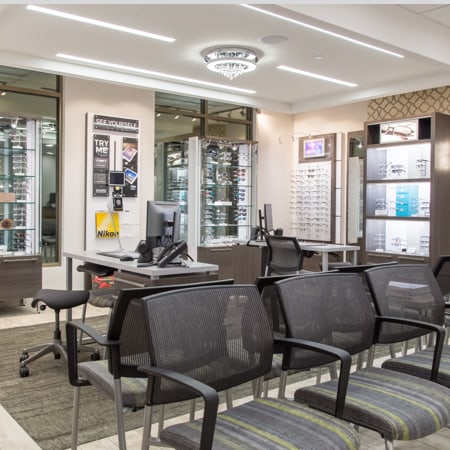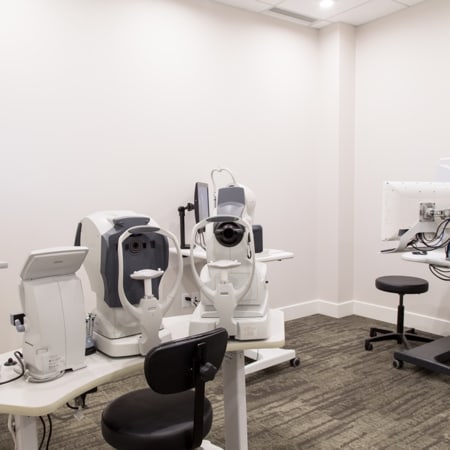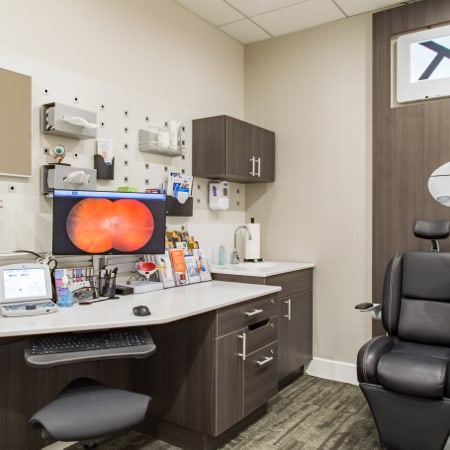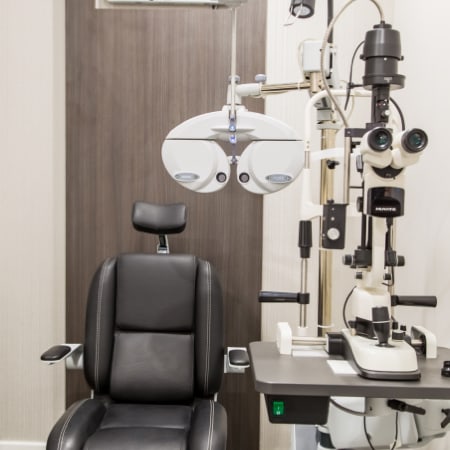Regular eye exams are one of the simplest ways to preserve your vision. However, they’re about much more than eyesight—they’re an investment in your overall health and well-being. Eye exams are a simple and effective way to catch potential problems long before they damage your eyes and vision, but how long does an eye exam take?
Typically, eye exams take roughly 1 hour or so. Your optometrist will be thorough, and carefully investigate the different structures of your eyes to look for all kinds of potential conditions. If they have any concerns, they may take a few extra minutes to gain a full understanding of your eyes.
Why Are Eye Exams So Important?
Eye exams are more than just a way to update your prescription—they’re a critical part of maintaining your overall health. Many eye and general health conditions often develop without any obvious signs, but an experienced optometrist can detect them sooner rather than later.
During an eye exam, your optometrist will be looking for signs of conditions such as:
- Glaucoma, a group of eye conditions that damage the optic nerve
- Cataracts, the clouding of your eye’s natural lens
- Age-related macular degeneration, a condition that affects the central part of the retina
- Diabetes and diabetic retinopathy, conditions that can damage the blood vessels in the back of the eye
Your optometrist can even catch conditions such as high blood pressure, thyroid problems, and more. These conditions are easier to treat in their earlier stages, making regular comprehensive eye exams a crucial part of your overall health.
How Often Should You Schedule an Eye Exam?
To stay on top of your eye health, you should try to book regular comprehensive eye exams according to these guidelines:
- Children under the age of 19 should have their first eye exam around the age of 6 months, and another before they turn 5. Then, annual eye exams are recommended until the age of 19.
- Adults aged 20-64 should book eye exams at least once every 2 years, and more often if previously diagnosed with any condition known to affect the eyes.
- Seniors aged 65 and older should have annual eye exams, and more often if previously diagnosed with any condition known to affect the eyes.
- A person of any age diagnosed with diabetes should schedule eye exams at least once per year, and more often if experiencing any abnormal vision symptoms.
These guidelines can make a significant difference, and give your optometrist the chance to monitor any changes in your eye and address problems before they cause any significant damage. Remember—early intervention is key to protecting your eye health and vision.
What to Expect from an Eye Exam
With eye exams, it’s important to know what to expect. This can make a significant difference and help you prepare accordingly, all while reducing any anxiety you may have about the exam.
It’s essential to remember that your optometrist is an eye care professional and that your comfort will always be a top priority. If you have any questions during your exam, feel free to ask. Our team can happily explain the purpose behind any tests and walk you through the process.
To prepare for your eye exam, make sure to bring along:
- A list of your family history of eye conditions
- Your current glasses or contact lenses
- A list of any medications you’re currently taking
- Any questions or concerns you may have about your vision
- Insurance information, if applicable
This is all valuable information that allows the optometrist to tailor the exam to your unique needs. So what should you expect during the exam itself?
Routine Eye Exams
A routine eye exam usually takes about an hour. During this time, the optometrist will:
- Assess your vision
- Look for early signs of potential problems
- Check for refractive errors
- Update your prescription if needed
These exams are simple, offering an easy way to stay on top of your eye health and maintain clear vision.
Comprehensive Eye Exams
A comprehensive eye exam is more thorough, usually taking roughly 1 hour or so. This exam incorporates the steps included in a routine eye exam, but your optometrist will also:
- Dilate your pupils
- Conduct visual acuity tests
- Evaluate how your eyes work together
- Measure eye pressure to check for glaucoma
- Examine the retina and optic nerve
- Assess your peripheral vision
Once complete, your optometrist will discuss their findings with you and suggest any necessary follow-up treatments.
Children’s Eye Exams
As your child grows, their eyes constantly change to develop a healthy visual system. Children’s eye exams are a crucial step in making sure your child’s eyes develop properly. During a children’s eye exam, your optometrist will check your child’s:
- Visual acuity
- Eye focusing
- Eye tracking
- Eye teaming
- Hand-eye coordination
- Perception
- Peripheral vision
They’ll note any changes between exams and intervene if necessary to promote the development of a strong visual system. These exams typically take between 45 minutes to 1 hour depending on your child’s needs.
Diabetic Eye Exams
For individuals living with diabetes, regular diabetic eye exams are crucial to preserving vision. Typically, a diabetic eye exam takes roughly 1 hour, and includes:
- Visual acuity testing
- Dilated retinal examination
- Measurement of eye pressure
- Evaluation of blood vessel changes in the retina
- Screening for diabetic retinopathy
Your optometrist will take the time to monitor any potential problems and suggest any needed treatments to preserve your eye health.
Book Your Next Eye Exam Today
Eye exams are a vital part of maintaining your eye health and overall well-being. Whether it’s a routine check-up or a specialized exam, knowing what to expect can help you feel more comfortable and prepared.
Don’t wait until your vision is compromised—book your next eye exam today with us at Central Optometry, and let our team help keep your vision clear.

